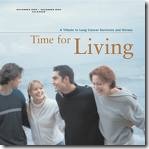M has been after me for a while now to be explicit in my blog about the level of pain I am experiencing. From her perspective, I have a tendency to present an overly optimistic or rosy view of my current health status.
She’s probably right. So I implemented the Twitter gadget which grabs the five most recent tweets I’ve issued. I did so partially with a view to correcting the lag between palliative care events and publishing a blog entry.
The gadget has limitations insofar as it includes all tweets, not just those that one might categorize as health related. I can add tags to individual tweets, but there is nothing in the blogging gadget which allows me to filter by tags. Inevitably, then, the “last five” tweets will include some that are personal, technological or political in nature.
But even if I issue several tweets a day, I still have a tendency to censor myself about the level of pain I’m experiencing.
Today’s blog’s purpose is to state unequivocally that the honeymoon I experienced when my pain medication was balanced is now over. I’ve been sick. I’ve experienced new visceral and possibly neuropathic pain in the buttocks and right leg. I’m increasing the frequency of administration of pain killers at the same time that I had the pain pump removed for greater mobility and convenience. I’ve gone through more foggy moments in conversation, whether in person or on the phone. My one son describes it this way, “Dad’s looping again.”
It is highly likely that some new medication or dosage change will restore balance and allow me to consider going outdoors again. But my current situation has reinforced how much pain I am actually experiencing and just how much I need these medications – fentanyl, hydromorphone, gabapentin and soon, probably, buscopan.
Until we achieve that balance, planning will be done daily and will be limited to activities related to end-of-life issues. Any other time available will be my time. Reading, writing, watching TV series on DVD, visiting when I’m healthy enough to entertain visitors.
Then there are the daily things which one can plan partially, but can only be done when the right moment presents itself - talking about the purpose of life, of vocation, of life-long learning, of the pursuit of happiness and the creation of joy in the lives of others – you know, the big stuff.
So, that’s what’s happening.







